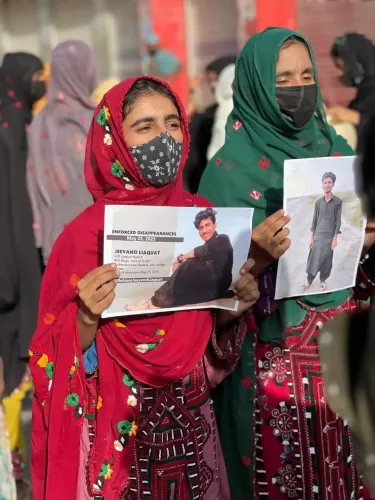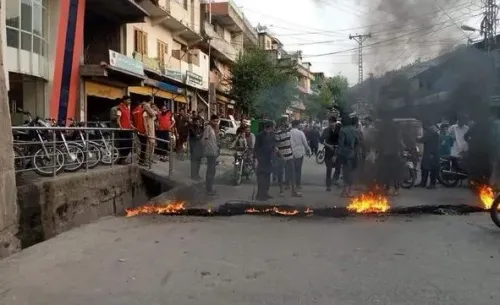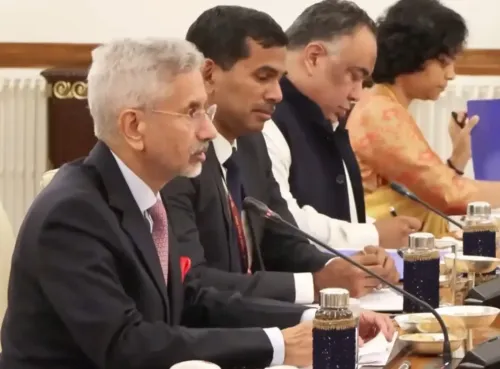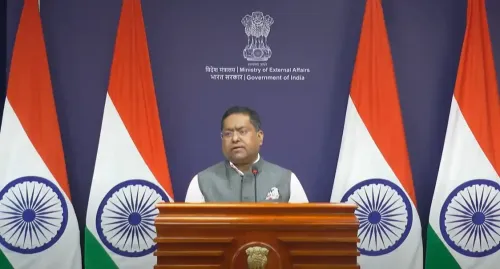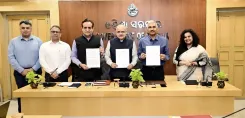How Are India and Central Asian Nations Enhancing Collaboration Against Terrorism?
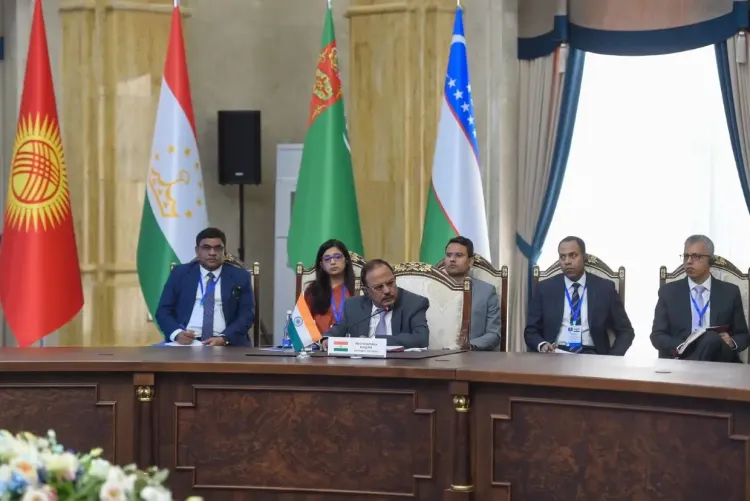
Synopsis
Key Takeaways
- Enhanced Cooperation: Focus on combating terrorism and extremism.
- Regional Connectivity: Prioritization of stronger ties between India and Central Asian nations.
- Technological Advancement: Expansion of collaboration into digital and emerging technologies.
- Stability in Afghanistan: Recognizing the importance of Afghanistan for regional security.
- Bilateral Engagement: Strengthening relationships through one-on-one meetings.
Bishkek, Oct 16 (NationPress) The Third India-Central Asia conference of the Secretaries of the Security Council/National Security Advisors convened in Bishkek on Thursday. The primary focus was on strategies to strengthen cooperation in combating terrorism, radicalisation, extremism, and narcotics trafficking.
India's National Security Advisor (NSA) Ajit Doval, along with the Secretaries/National Security Advisors from Kazakhstan, Kyrgyzstan, Uzbekistan, and the Deputy Secretary of Tajikistan's Security Council, participated in this crucial meeting. The discussions included a consensus on enhancing connectivity between India and the Central Asian nations.
The statement from the Ministry of External Affairs (MEA) highlighted that the Secretaries of the Security Councils/National Security Advisors reiterated the importance of maintaining regular dialogue to address evolving security challenges. They explored avenues for collaboration in areas including counter-terrorism, radicalisation, extremism, and narcotics issues.
Additionally, the Secretaries/NSAs stressed the pivotal role of ensuring security and stability in Afghanistan for the broader region. They committed to closely working with Afghanistan to tackle security hurdles and foster connectivity and economic growth, which could serve as a foundation for lasting stability. They also agreed to broaden the cooperation framework to cover sectors such as digital connectivity, infrastructure, artificial intelligence, emerging technologies, and space collaboration.
NSA Doval, alongside the Secretaries of Security Councils from Central Asia, had a meeting with Kyrgyzstan's President Sadyr Nurgozhoevich Zhaparov. He also engaged in bilateral discussions with the Secretaries of the Security Councils from Kazakhstan, Kyrgyzstan, and Uzbekistan.
The Indian Embassy in Kyrgyzstan shared on X that "H.E. Mr. Sadyr Zhaparov, Hon’ble President of the Kyrgyz Republic received National Security Advisor Ajit Doval and the Secretaries of the Security Councils from Central Asian states who attended the 3rd meeting of the India-Central Asia Secretaries of the Security Council in Bishkek."
This Third meeting of the Secretaries of Security Councils/National Security Advisors was established based on the agreement reached during the inaugural India-Central Asia Summit on January 27, 2022, to facilitate regular gatherings at the level of Secretaries of the Security Councils/National Security Advisors. NSA Doval previously led the Indian delegation at the Second India-Central Asia Meeting in Astana.

